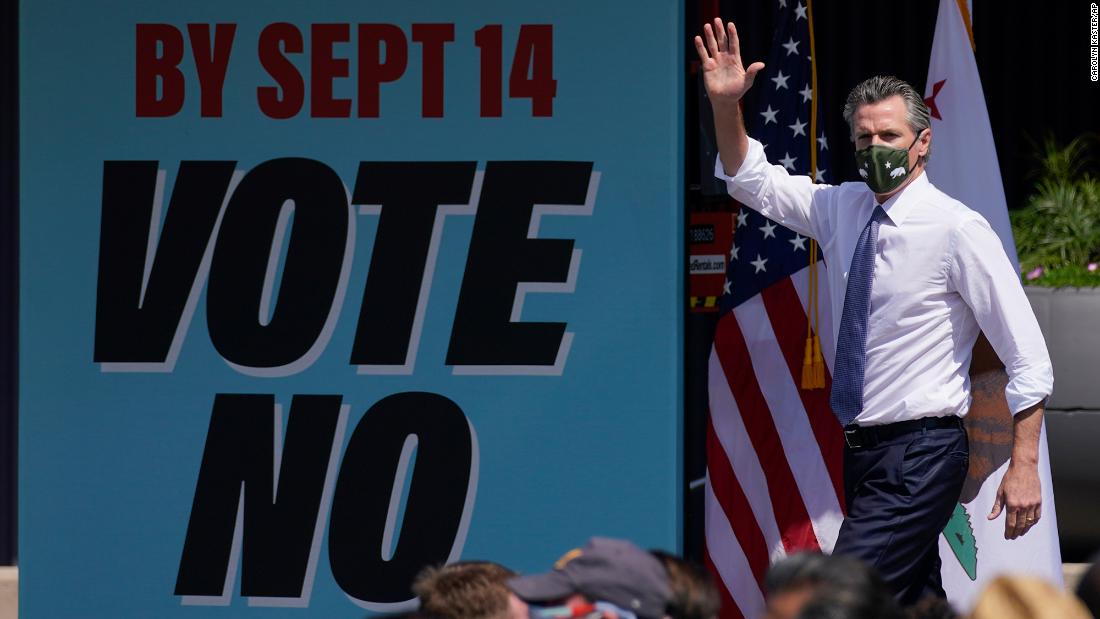The Golden State’s gubernatorial recall election is in the final stretch, and there is a clear trend in the data
Democratic Gov. Gavin Newsom’s position (i.e. the “no” option on the recall) is strengthening significantly. While there are a few gubernatorial elections featuring a polling error as large as Newsom’s advantage, it would take one of the largest polling misses in the last 23 years for him to be recalled on Tuesday.
The edge that the “no” position has over the “yes” position in the recall has, in other words, more than tripled in the average since last month.
It shouldn’t be too surprising that the movement has been against recalling Newsom. While any election is a choice between candidates, a recall is by its very nature more about the incumbent’s standing in the minds of the voters than a regular election. Newsom’s approval rating has regularly and usually comfortably been above 50% in the polls.
Now, obviously number crunchers like myself are cautious after polling in a number of recent high-profile situations underestimated the conservative position, which in this election would be the “yes” side.
An examination of those misses reveals that the polling now is nothing like it was then.
Biden ended up winning Wisconsin by less than a point, as Trump carried Iowa and Ohio by 8 points each.
Depending on how you calculate the averages, the polling underestimated the result by about 7 points in these three states.
“No” is ahead on the recall by double the size of these 2020 polling misses.
This 2% could underestimate the chance the polls are off in this year’s recall because of its unique nature (i.e. it’s an off-year election in which voters aren’t deciding between a Democrat and a Republican initially but first on whether to recall Newsom). Still, this 2% is a pretty good baseline to understand that the type of polling error the recall effort needs to succeed happens very rarely.
Keep in mind, too, that any polling error could go against the recall effort. The polls could be underestimating the opposition to the recall, meaning the “no” vote is higher than it looks — a potentially under-discussed possibility.
One way the polls could be seriously off would be if pollsters misjudged which voters would ultimately turn out to vote.
So far, there really isn’t much of a sign to expect a vastly different turnout by party than in 2020, when Biden easily won the state.
It’s obviously possible that Republican turnout in the final days is so great that the ultimate voting electorate is much more Republican than 2020 and much more Republican than the pollsters calculated.
Republicans have, after all, been more inclined than Democrats to vote in-person on Election Day since the coronavirus pandemic began. It just seems unlikely at this point.
For Newsom to get recalled, something would need to dramatically change in the final two days before the election. Again, that’s plausible and wouldn’t be unprecedented. It just would be a real big surprise.
![]()


